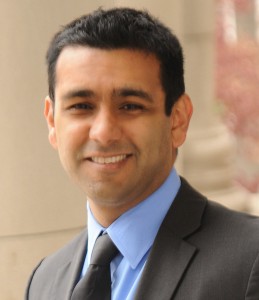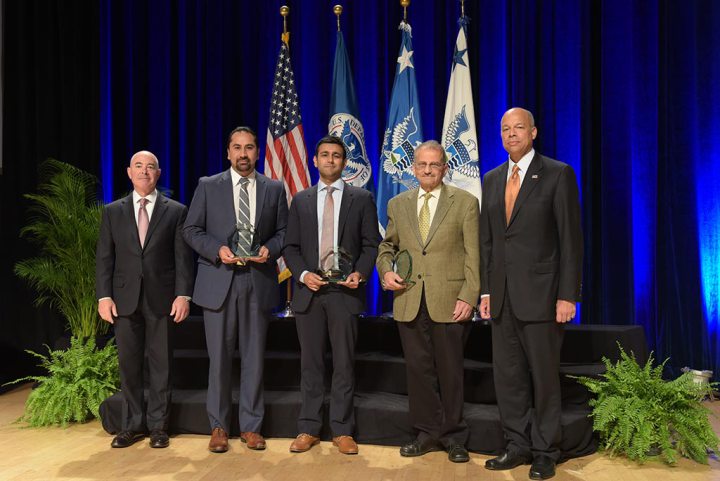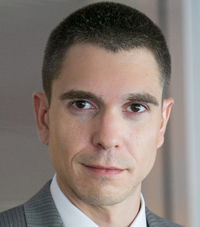The American public is intensely aware of the potential conflict between security and individual privacy and civil rights. Edward Snowden leaked information about NSA surveillance programs in 2013. Communities around the country are decrying profiling in the government effort to stop foreign fighters from joining ISIS. And the FBI paid $1.3 million to two private citizens to hack into the iPhone of one of the San Bernardino shooters.
It would seem Americans have good reason to debate the appropriateness of certain initiatives launched in the name of national security. As FBI Director James Comey told 60 Minutes: “I believe that Americans should be deeply skeptical of government power. You cannot trust people in power.”
But what about those to whom power is given as a check on government action? An ombudsman or watchdog, for instance. Watchdog agencies serve as an essential counterbalance to local, state and federal initiatives. They work internally to ensure government policies complete their mission without sacrificing the rights and liberties of Americans. Yet, what exactly is a watchdog? It’s easy enough to look up a job description, but that does not necessarily reveal the ideas and philosophies that guide a public servant. What drives them? What are their priorities? Why did they take up the homeland security mission to begin with? Answers to these questions can tell the interested public a lot about what public servants are doing to monitor security efforts that could impact civil rights.
One of those public servants is Ehsan Zaffar, a Senior Advisor at the DHS Office for Civil Rights and Civil Liberties (CRCL). I sat down with Mr. Zaffar to better understand his personal philosophies and how they shape his work.
What is purpose of having a watchdog office, such as CRCL, in a federal agency? Is it to watch for purposeful discrimination and overt transgressions of civil liberties?
 No federal agency intentionally sets out to infringe on civil rights. The purpose of any government entity is to serve the citizenry, and the thousands of people who make up the federal government, for example, are as concerned with oppressive government activity as anyone else. Instead, a watchdog office is most valuable in monitoring for “bureaucratic harms,” which are less obvious, and for that reason, potentially more insidious. In the aggregate, a series of inadvertent bureaucratic harms can be just as detrimental as a single discriminatory regulation or initiative. Some examples include inappropriate information sharing between agencies without a warrant, or undue scrutiny at a security checkpoint, generating social, psychological and monetary costs to the individual.
No federal agency intentionally sets out to infringe on civil rights. The purpose of any government entity is to serve the citizenry, and the thousands of people who make up the federal government, for example, are as concerned with oppressive government activity as anyone else. Instead, a watchdog office is most valuable in monitoring for “bureaucratic harms,” which are less obvious, and for that reason, potentially more insidious. In the aggregate, a series of inadvertent bureaucratic harms can be just as detrimental as a single discriminatory regulation or initiative. Some examples include inappropriate information sharing between agencies without a warrant, or undue scrutiny at a security checkpoint, generating social, psychological and monetary costs to the individual.
CRCL is a congressionally mandated office dedicated purely to monitoring and working to remediate potential or actual bureaucratic harms that diminish civil rights or civil liberties. We do this through a holistic approach, from complaint intake to engaging communities to understand their grievances with the Department. By my reckoning, it is the largest office of its kind in any government agency in the world, and its one reason why I decided to join my fellow colleagues at CRCL, to contribute to this important mission. DHS is serious about guarding civil rights and civil liberties, and I am proud to say that DHS has allocated considerable resources to complete this mission.
The security-privacy-civil liberties debate often focuses on the concept of balance, implying a citizen must give up some freedoms to achieve greater safety. Is there an appropriate balance and if so, how do we define it?
The idea that we have to give up our liberty to ensure our security is a false tradeoff. Civil rights and security are too-often explained as being mutually exclusive. I call this the “all or nothing” argument. It goes something like this: when times are tough, security needs to be increased, and doing so means reducing civil liberties by an equivalent quanta. I think that argument is false. There need not be any tradeoff. We can enjoy civil liberties and increased security simultaneously – securing airplane doors after 9/11 is one example. Doing so, however, requires feedback from NGO advocates and strong, resilient communities that are willing—and respected—partners with public agencies.
So what is a strong community? How does it help ensure civil liberties are preserved amid changing homeland security priorities?
A strong community is able to recognize and articulate the problems they are experiencing, which is far easier said than done. Recognizing harms, developing consensus, and taking action are all complex endeavors, and every community is at different stages of integration, education and awareness of collective action.
We are fortunate to have a civil society in the United States that is robust, active and highly engaged. It is self-financed, mostly private and well-staffed. This is quite different from many other countries where organizations that represent community interests are government funded, which creates a huge conflict of interest. In the United States, we have community groups, advocacy organizations, media watchdogs, academics and other organizations that communities can pay to collectively represent their interests and file lawsuits on their behalf. For most new Americans, this set up is especially foreign.
In U.S. civil society, different communities come to the table with different levels of sophistication. We can identify three primary stages in forging a stronger community. In the first stage, communities find themselves challenged to even accurately articulate the issues they are experiencing, which is often the case with newer, largely immigrant communities. In the second stage, communities can recognize and effectively express a problem, but they are challenged to take the actions that could yield improvements. In stage three, communities can articulate an issue and take consistent action, even when there are some divisions within the community. It is in this stage where we find the development of strong, resilient communities.
As a professor of national security law and civil rights, you teach young people who will someday be leaders in the homeland security and civil rights community. What ideas and concerns are you hearing from students regarding liberty and security?
I have seen a change in the way students are thinking and the topics that interest them. The course I teach on privacy and surveillance at George Mason University has been the most interesting and revealing. The course is discussion oriented, and every semester students come to class increasingly better informed about the local, state and federal laws that governments have passed to address the post-9/11 security environment. Young adults understand the violent extremist threats to this country, but they also understand there are other valid threats. They raise concerns about income inequality, the loss of the middle class, implications from rising foreign economies and unregulated global trade—they see these issues as security priorities. And I agree with them. For me, these are national security issues. When the middle class goes away, who will buy the products that generate revenue for American businesses and create American jobs? What does that do to our economy? And what does that in turn do to our security and freedoms? Thinking about national security purely through the counterterrorism lens is antiquated. We need to be a more holistic.
Why do you do this work? There is little recognition for you, and the task is never-ending. Where do you find value and reward in what, on the face of it, looks to be a thankless role?
This kind of work fits into my theory of change, which is the driving idea behind my career at DHS and one of the reasons I enjoy teaching so much. I believe in four types of change: broad, narrow, deep and shallow. Before coming to Washington, I was practicing law in California, where I founded and ran the Los Angeles Mobile Legal Aid Clinic (LAMLAC). My work with LAMLAC was focused on narrow but deep change; I was helping one client at a time, but the work I did had a deep and lasting impact on the individuals with whom I worked. Similarly, when I was providing legal assistance to communities struggling in post-Hurricane Katrina Louisiana and Mississippi, my work resulted in narrow but deep change.
When I joined DHS, I saw an opportunity to create shallow but broad change. For example, working with my colleagues, I might contribute to a policy amendment of which few people are aware but that could impact millions of people across the country for years to come. Of course, the goal is to someday be able to achieve change that is both broad and deep. But in any case, my driving motivation has always been to help empower communities so they can affect positive change in their lives. I don’t need any recognition to feel fulfilled by that.
This piece was originally published by Defense Media Network.



